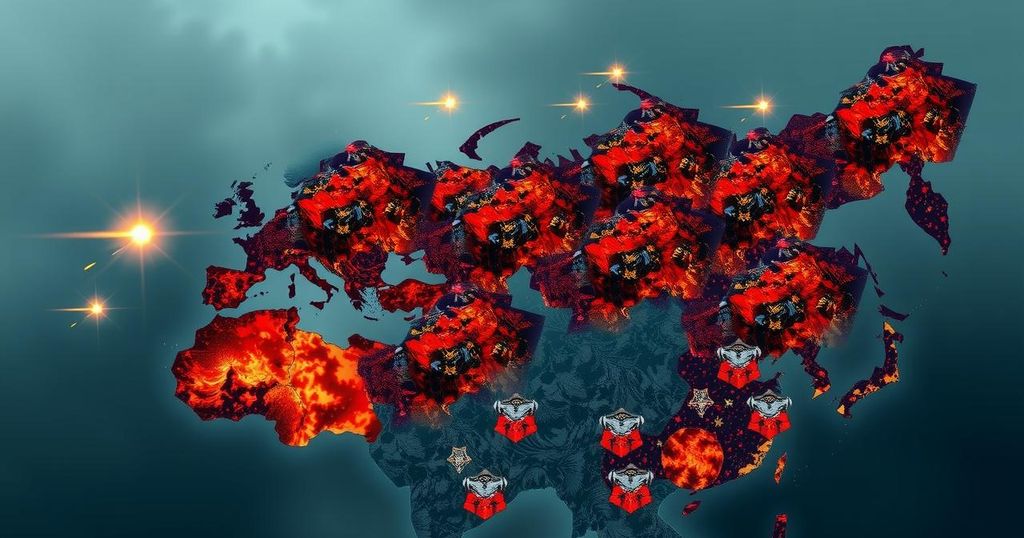China faces growing international pressure to influence North Korea to halt its troop deployments to Russia, where over 10,000 soldiers have joined the conflict in Ukraine. At recent summits, world leaders urged President Xi Jinping to engage in more proactive diplomacy. However, China’s reluctance to challenge North Korea reflects its complex geopolitical balancing act between maintaining ties with Moscow and responding to Western concerns.
China is currently navigating a precarious situation regarding North Korea’s deployment of over 10,000 troops to support Russian forces in Ukraine. At recent summits in Peru and Brazil, Chinese President Xi Jinping faced pressure from global leaders, including U.S. President Joe Biden and South Korean President Yoon Suk Yeol, to influence North Korea to cease its military assistance to Russia. The deployment’s escalation threatens to complicate China’s delicate balancing act between maintaining its relationships with Moscow and avoiding further deterioration of its ties with Western nations.
During a joint press conference with Brazilian President Lula da Silva, Xi advocated for enhanced diplomatic efforts toward peace in Ukraine while promoting a consensus emphasizing dialogue. However, despite these diplomatic overtures, Beijing has not publicly condemned Pyongyang’s military collaboration with Moscow. As tensions rise, analysts note that China’s reluctance to confront North Korea reflects its broader strategic interests and apprehension regarding potential backlash from the United States and its allies.
The situation remains complex as Chinese officials express concerns over North Korea’s military endeavors, which may embolden risky behavior domestically that could impact China’s stability. Nevertheless, China appears unwilling to jeopardize its alliance with Russia, recognizing a shared opposition to U.S. global influence. This duality illustrates the inherent challenge China faces in balancing its foreign policy objectives and the geopolitical consequences at play in the context of the ongoing Ukraine conflict.
The relationship between North Korea, China, and Russia is historically intricate. China has traditionally been North Korea’s main ally, providing economic support and acting as a mediator in international disputes. However, the recent military cooperation between North Korea and Russia has placed Beijing in a challenging position. As Western powers express concern over this partnership, China seeks to maintain its strategic interests while managing diplomatic relations with both North Korea and its own trading partners. With the U.S. escalating its strategic competition with China, this situation has added further complexity to China’s foreign policy as it strives to maintain stability and regional influence.
In summary, China’s involvement in the North Korea-Russia military alliance presents significant diplomatic challenges for President Xi Jinping as he seeks to balance relations with both parties while responding to Western pressures. The deployment of North Korean troops complicates Beijing’s position in the Ukraine conflict, highlighting the delicate nature of its foreign policy. China remains hesitant to confront North Korea directly, demonstrating its preference to navigate these tensions carefully while preserving its strategic partnerships and addressing potential economic repercussions.
Original Source: www.voanews.com






